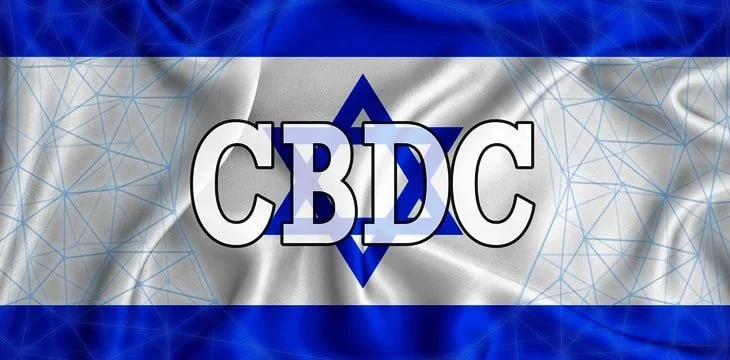Israel is the latest country to admit that it has been committed to developing a central bank digital currency.

Speaking at the Fair Value Forum, Bank of Israel Deputy Governor Andrew Abir said that the institution he represents already has a digital shekel pilot program.
More importantly, he confirmed that Israel’s CBDC already exists. But Abir believes that their digital shekel will not see the light anytime soon. The Jerusalem Post quoted him as saying:
“I had previously estimated that the chance of having a CBDC within five years is 20%,” Abir said. “My estimate has increased a bit in the last year, mainly because other countries are advancing with it too. But still, there is less than a 50% chance.”
Other countries include China, the United Kingdom, Japan, Brazil and Nigeria.
Regarding Nigeria, Bitcoinist reported yesterday:
The Central Bank of Nigeria’s Chief Information Officer Rakiya Mohammed responded to what many other countries have mentioned in the past. In other words, Nigeria will not fall behind in the technological revolution.
“We’re all aware that about 80% of central banks in the world exploring the possibility of issuing central bank digital currency, and Nigeria cannot be left behind.”
With all of these countries openly discussing a national digital currency, can we trust Abir’s estimate that Israel’s CBDC is unlikely in the next five years?
Since they are already discussing Israel’s CBDC, Andrew Abir took the opportunity to talk about other aspects of the digital shekels project.
On the one hand, he assured that its purpose is not to replace the bank.
“I’m sorry to tell you, but it’s not going to eliminate the banks,” he said. “No central bank will introduce a digital currency for this purpose”.
The banks will still have an important part in the entire payment system.
Given that he seems to be speaking on behalf of all central banks, can we imply that they have discussed this issue? If everything is digital, what “important role” will the banks play?
Most likely, CBDC is part of our future lives. These issues are aspects of the process that the world must begin to consider.
Of course, Abir could not complete the exploration of the digital shekel without attacking Bitcoin.
Another thing that might disappoint you is that any digital currency of a central bank would not be designed as a kind of protection against bitcoin. What we are talking about is a payment system. Bitcoin is not a payment system, and it is not a currency. In the best situation, it is a financial asset, and in the worst case, it is a pyramid scam.”
We are talking about payment systems. Bitcoin is not a payment system, nor is it a currency. At best it is a financial asset, at worst it is a pyramid scam”.
Actually, no one on earth thinks that CBDC will be “designed as a hedge against Bitcoin,” but it doesn’t matter. Let us answer. because Bitcoin is already legal tender in El Salvador, we can think of ourselves as ” Non-monetary” nonsense.
This major event occurred due to the successful use case of Bitcoin Beach, so we can also exclude “not a payment system”. Government officials and Bitcoin critics can ignore it, but the Lightning Network does exist. In El Zonte, ordinary people use it for various transactions every day.
#Bitcoin El Salvador 🇸🇻 #LightningNetwork @nayibbukele @MorenaValdezSV @DocumentingBTC @Bitcoinbeach @jorgebitcoinES @EricGrill pic.twitter.com/01DgmLhN4S
-Roman Martínez (chimbera) (@romanmartinezc) June 21, 2021
Bidders in El Salvador, the fiat currency of June 21, knew it was valid. Without Bitcoin Beach and the Lightning Network, it would not have existed. Sorry, Andrew Abil, your argument is invalid.
